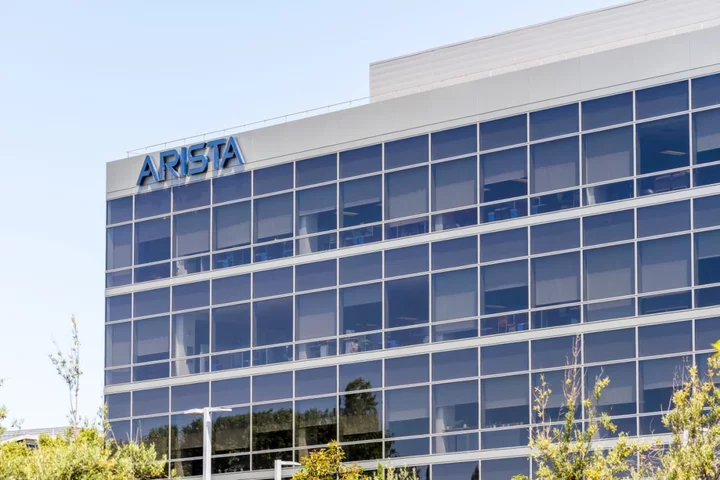
These Stocks Are Moving the Most Today: Arista, Lattice, Pinterest, Wolfspeed, BP, AB InBev, and More
Arista Networks' third-quarter adjusted earnings easily topped estimates, Lattice Semiconductor issues a weak revenue forecast, and Pinterest posts a profit and revenue better than analysts' expectations.
2023-10-31 12:48
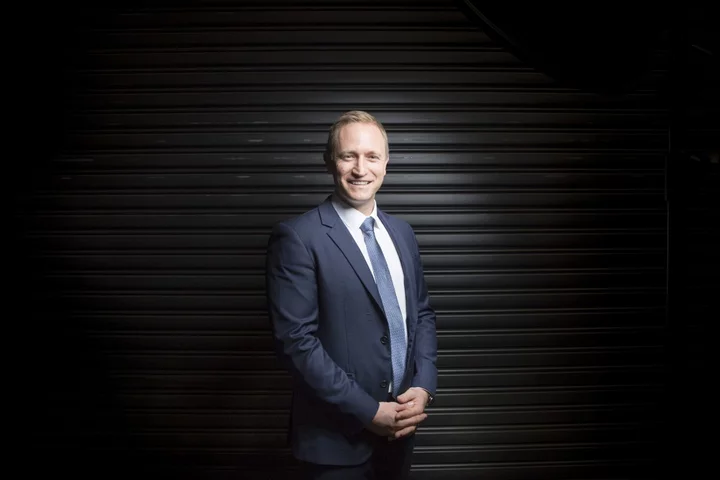
Fortescue Buoyant on China Iron Ore as It Advances Green Pivot
Chinese demand for Australian iron ore will remain strong despite the nation’s disappointing post-pandemic recovery, according to Fortescue
2023-10-31 09:36
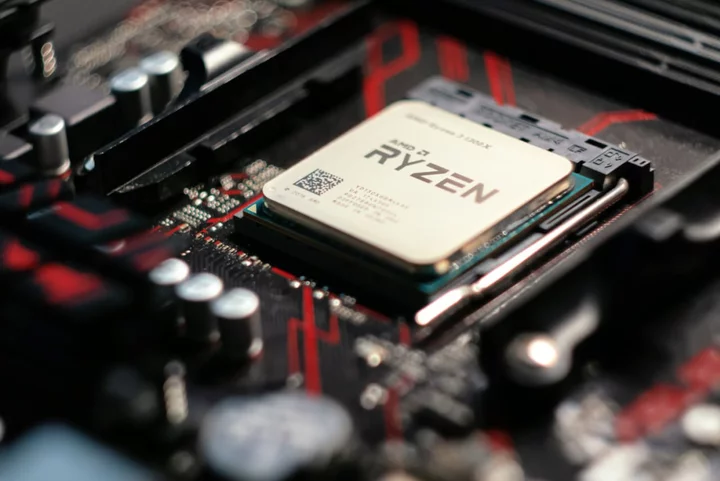
AMD Reports Earnings Today. Analysts Are Worried About Data Center.
The consensus is that Advanced Micro Devices will report quarterly revenue of $5.7 billion with adjusted earnings per share of 68 cents.
2023-10-31 09:00

Apple MacBook Pro: New laptops revealed with new chips – and new colour
Apple has revealed an updated version of its MacBook Pro, featuring new chips and a new colour. The new computer was launched at its ‘Scary Fast’ event. The only other launch from the event was an update to the iMac, which was first released in 2021, which receives a new processor but no other changes. Both the new laptops and the updated iMac are powered by Apple’s new M3 chip. That is the third generation of the company’s own Apple Silicon chips, since it began producing them in 2020. Apple said that the M3 chip was around 15-30 per cent faster than the previous M2. But it preferred to compare its performance with the Intel chips that it used in its computers until 2019, in what appeared to be a gesture of humility about the changes in the new line-up. As well as the base version of the M3, which will go into the new 24-inch iMac and 14-inch MacBook Pro, Apple launched the more powerful M3 Pro and M3 Max. It is the first time that Apple has unveiled three chips at once – in previous generations, Apple launched the base version of the processor before higher-powered versions some months later. In addition to the new chip, Apple announced a new “space black” colour for the MacBook Pro. It specifically pointed out that it used a particular kind of aluminium that would not pick up fingerprints. The updated 14-inch MacBook Pro received a price cut from $1,999 to $1,599. All of the updated computers will go on sale next week, with the exception of the MacBook Pro with M3 Max, which will arrive later in November. Those three announcements – a new family of chips, alongside a new iMac and two versions of the MacBook Pro to put them in – were the only announcements from the event. Apple also removed the 13-inch version of the MacBook Pro from its line-up, but did not announce it during the event. It lasted only 30 minutes, unusually short for an Apple event. Apple chief executive Tim Cook closed the event by suggesting there would be no more major announcements for the rest of the year. The livestreamed launched had been odd from the beginning. Apple held it at night time rather than its standard morning launch, as well as holding it much later in the year than usual, and announced it with relatively little preparation. Read More Apple is about to launch new products at a shock event - follow live How Apple gave people a library of classical music – and made it accessible Apple is about to add a host of new features to the iPhone
2023-10-31 08:47

Wolfspeed jumps on upbeat quarterly forecast
Chipmaker Wolfspeed on Monday forecast a smaller-than-estimated second-quarter loss as it expects a boost to its business from
2023-10-31 05:58
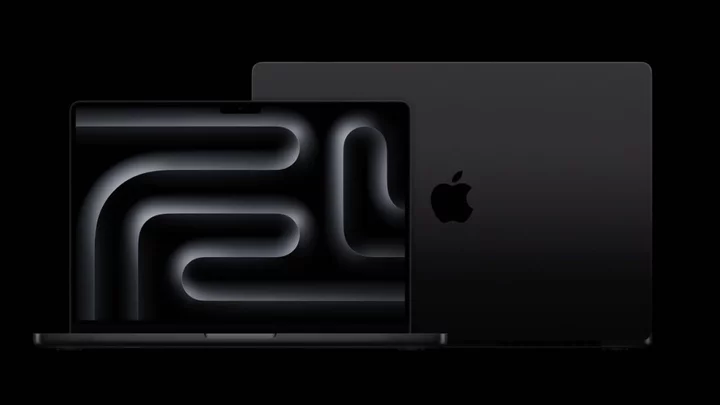
Apple Unveils New M3 Processors and New MacBook Pros
A mysterious Apple launch event is offering hope of some positive news ahead of earnings but Wall Street analysts are cautious.
2023-10-31 04:42
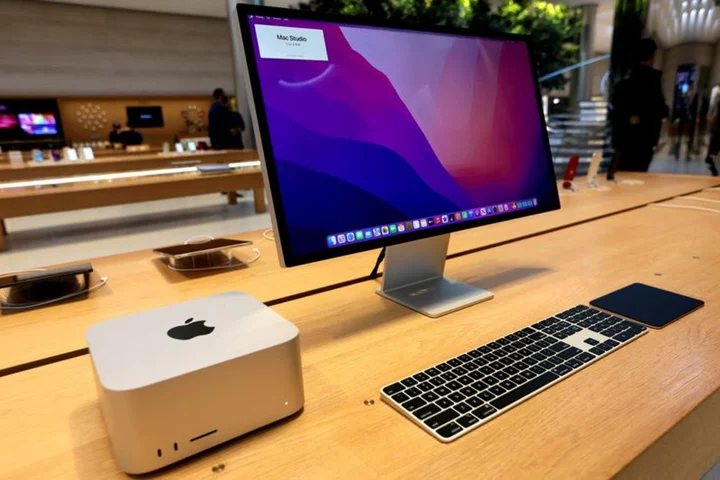
Apple expected to unveil new Macs as PC industry slump eases
By Stephen Nellis Apple is expected to unveil at an event on Monday new Mac computers and possibly
2023-10-31 03:54
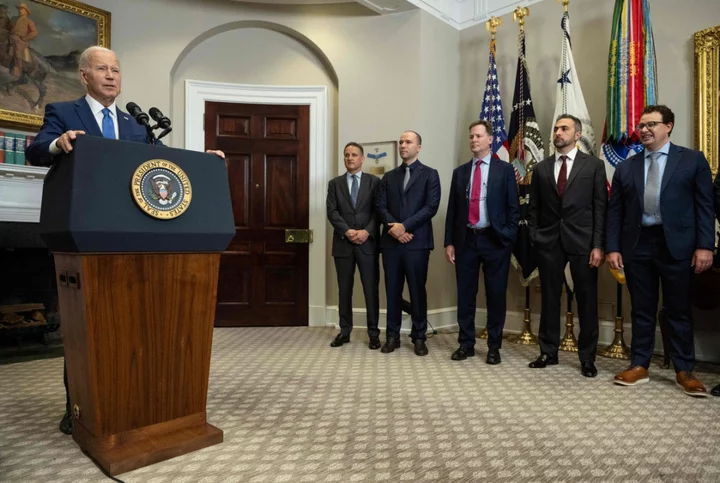
Why Biden is so concerned about AI
President Joe Biden is addressing concerns about artificial intelligence as the administration attempts to guide the development of the rapidly evolving technology. The White House said on Monday (30 October) that a sweeping executive order will address concerns about safety and security, privacy, equity and civil rights, the rights of consumers, patients, and students, and supporting workers. The order will also hand a list of tasks to federal agencies to oversee the development of the technology. ‘We have to move as fast, if not faster than the technology itself’ “We can’t move at a normal government pace,” White House Chief of Staff Jeff Zients quoted Mr Biden as telling his staff, according to the AP. “We have to move as fast, if not faster than the technology itself.” Mr Biden believes that the US government was late to the game to take into account the risks of social media, leading to the related mental health issues now seen among US youth. While AI may help drastically develop cancer research, foresee the impacts of the climate crisis, and improve the economy and public services, it may also spread fake images, audio and videos, with possibly widespread political consequences. Other harmful effects include the worsening of racial and social inequality and the possibility that it can be used to commit crimes, such as fraud. The president of the Center for Democracy & Technology, Alexandra Reeve Givens, told the AP that the Biden administration is using the tools at their disposal to issue “guidance and standards to shape private sector behaviour and leading by example in the federal government’s own use of AI”. Mr Biden’s executive order comes after technology companies have already made voluntary commitments, and the aim is that congressional legislation and international action will follow. The White House got commitments earlier this year from Google, Meta, Microsoft, and OpenAI to put in place safety standards when building new AI tools and models. Monday’s executive order employs the Defense Production Act to require AI developers to share safety test results and other data with the government. The National Institute of Standards and Technology is also set to establish standards governing the development and use of AI. Similarly, the Department of Commerce will publish guidance outlining the labelling and watermarking of content created using AI. An administration official told the press on Sunday that the order is intended to be implemented within between 90 days and a year. Safety and security issues have the tightest deadlines. Mr Biden met with staff last Thursday for a half-hour meeting that grew into an hour and 10 minutes to put the finishing touches on the order. Biden ‘impressed and alarmed’ by AI The president was engaged in meetings about the technology in the months that preceded Monday’s order signing, meeting twice with the Science Advisory Council to discuss AI and bringing up the technology during two cabinet meetings. At several gatherings, Mr Biden also pushed tech industry leaders and advocates regarding what the technology is capable of. Deputy White House Chief of Staff Bruce Reed told the AP that Mr Biden “was as impressed and alarmed as anyone”. “He saw fake AI images of himself, of his dog,” he added. “He saw how it can make bad poetry. And he’s seen and heard the incredible and terrifying technology of voice cloning, which can take three seconds of your voice and turn it into an entire fake conversation.” The AI-created images and audio prompted Mr Biden to push for the labelling of AI-created content. He was also concerned about older people getting a phone call from an AI tool using a fake voice sounding like a family member or other loved one for the purpose of committing a scam. Meetings on AI often went long, with the president once telling advocates: “This is important. Take as long as you need.” Mr Biden also spoke to scientists about the possible positive impacts of the technology, such as explaining the beginning of the universe, and the modelling of extreme weather events such as floods, where old data has become inaccurate because of the changes caused by the climate crisis. ‘When the hell did I say that?’ On Monday at the White House, Mr Biden addressed the concerns about “deepfakes” during a speech in connection with the signing of the order. “With AI, fraudsters can take a three-second recording of your voice, I have watched one of me on a couple of occasions. I said, ‘When the hell did I say that?’” Mr Biden said to laughter from the audience. Mr Reed added that he watched Mission: Impossible — Dead Reckoning Part One with Mr Biden one weekend at Camp David. At the beginning of the film, the antagonist, an AI called “the Entity”, sinks a submarine, killing its crew. “If he hadn’t already been concerned about what could go wrong with AI before that movie, he saw plenty more to worry about,” Mr Reed told the news agency. The White House has faced pressure from a number of allied groups to address possible harmful effects of AI. The director of the racial justice programme at The American Civil Liberties Union, ReNika Moore, told the AP that the union met with the administration to make sure “we’re holding the tech industry and tech billionaires accountable” so that the new tools will “work for all of us and not just a few”. Ex-Biden official Suresh Venkatasubramanian told the news agency that law enforcement’s use of AI, such as at border checkpoints, is one of the top challenges. “These are all places where we know that the use of automation is very problematic, with facial recognition, drone technology,” the computer scientist said. Read More Biden reacts to watching deepfakes of himself: ‘When the hell did I say that?’ Rishi Sunak to hold live chat with Elon Musk during AI summit Liz Truss ‘deeply disturbed’ by Sunak’s invitation to China to attend AI summit Extinction risk from AI on same scale as nuclear war, Sunak warns Revealed: Government using AI to decide on benefits and driving licences Brexit means UK can be global leader on AI, says Facebook co-founder
2023-10-31 03:52
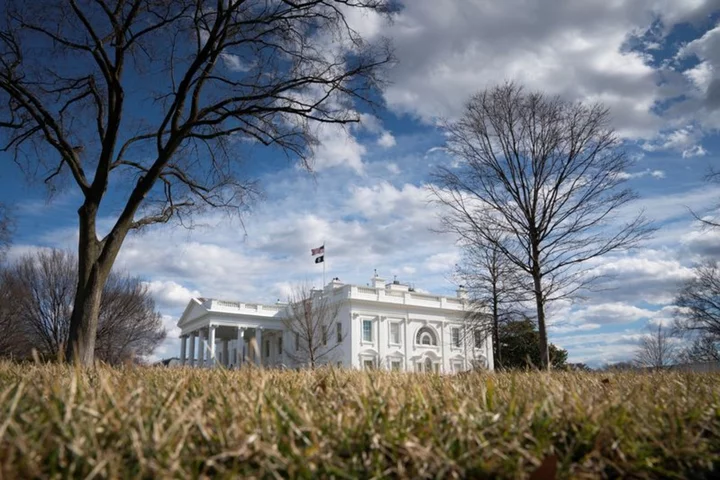
White House to share ransomware data with allies -source
By Trevor Hunnicutt and Zeba Siddiqui WASHINGTON The White House is working to finalize as soon as Tuesday
2023-10-31 03:29
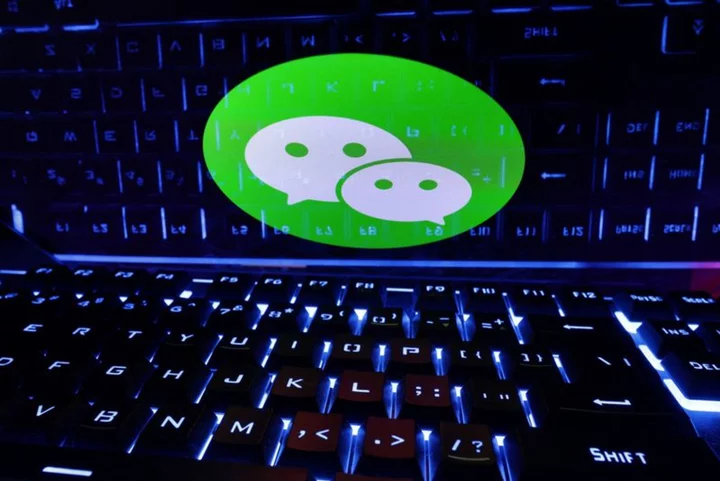
Canada bans WeChat, Kaspersky applications on government devices
OTTAWA (Reuters) -Canada on Monday banned Chinese messaging application WeChat and Russian antivirus program Kaspersky on government-issued mobile devices due
2023-10-31 02:26

Threat of Haywire AI Feeds Calls for Development Pause, AXA Says
Governments are ill-prepared for the hazards brought on by artificial intelligence and development should be paused, according to
2023-10-31 01:42
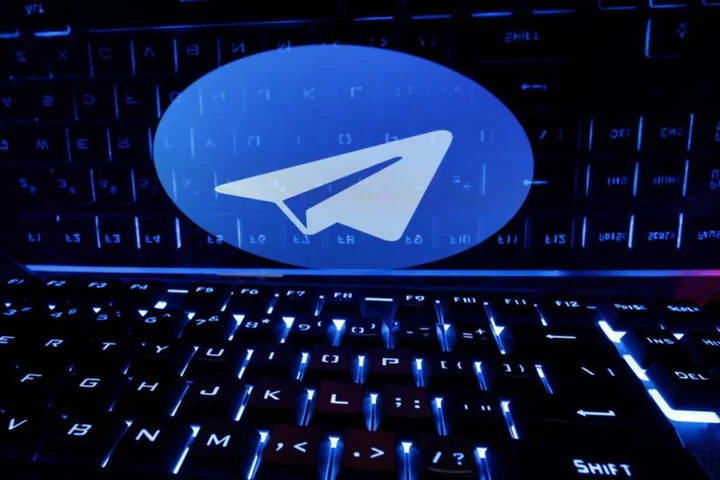
Telegram to ban channels that called for anti-Semitic riots in Russia's Dagestan - founder
MOSCOW The popular messaging platform Telegram will block channels that called for anti-Semitic violence in Russia's Dagestan region,
2023-10-31 01:24
You Might Like...

Cantaloupe Notes Rapid Growth of EMV-Enabled Vending Credit/Debit Card Payments

Hamas' cash-to-crypto global finance maze in Israel's sights
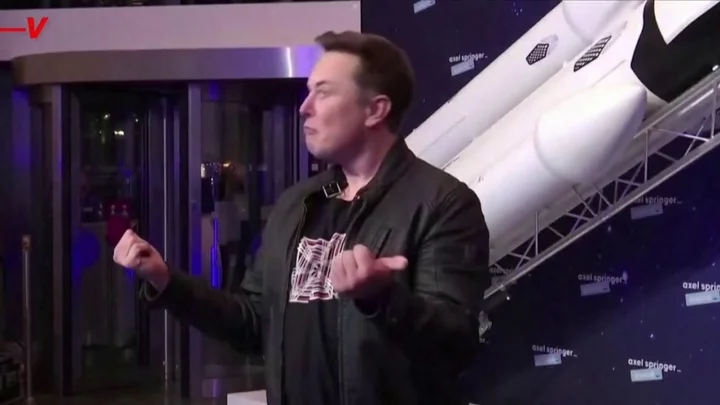
Elon Musk now considers 'cisgender' to be a slur

Hackers take on ChatGPT in Vegas, with support from the White House

C&W Networks and C&W Business in Latin America Come Together to Rebrand as Liberty Networks to Shape the Future of Digital Connectivity

Exclusive-After Micron ban, Chinese chip firm CXMT should go on U.S. trade blacklist, top lawmaker says

Who is Bryan Kohberger? The criminology graduate being arraigned over the Idaho college murders
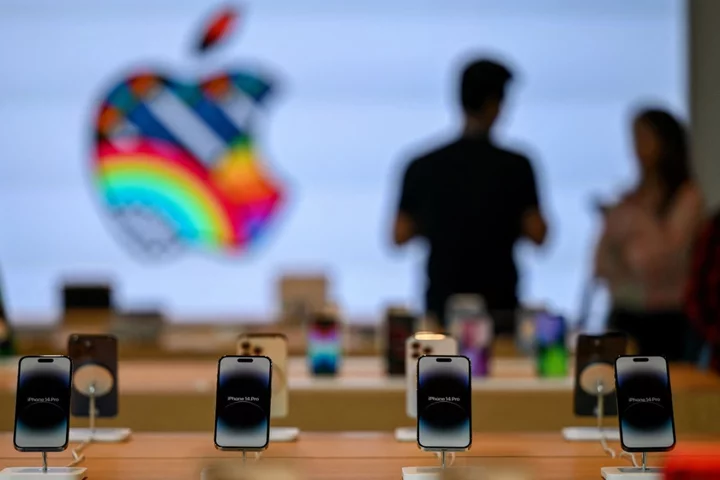
Police spread baseless panic with warning over new iPhone feature
